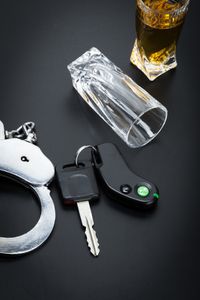
Field sobriety tests are just one of the tools police use to assess impairment. Although they can provide evidence of intoxication, they can also indicate other conditions that have nothing to do with drugs or alcohol. As a result, motorists should be wary of consenting to them during DUI stops. Below, the criminal defense team at Coyne, Cundiff & Hillemann, P.C., in Lake St. Louis, MO, explains your rights during these interactions.
What Are the Main Field Sobriety Tests?
There are three primary field sobriety tests: the horizontal gaze nystagmus, the walk and turn, and the one-leg stand test. The horizontal gaze nystagmus test is the most accurate of these and typically identifies motorists whose blood alcohol concentration is between 0.08% and 0.12%. During the exam, officers ask suspects to follow a moving object with their eyes. If their eyes shift in a jerky motion, it could be indicative of alcohol impairment.
 Both the walk and turn test and the one-leg stand test provide police with the opportunity to assess a suspect’s balance, focus, and coordination. In the walk and turn test, you must take several steps, heel-to-toe, in a straight line before turning around and returning to the starting point. In the one-leg stand test, you must raise one foot about six inches off the ground and remain that way while counting to 30. Since it is possible to fail either of these tests while sober, whether due to nerves, poor balance, or uncomfortable shoes, they are not good indicators of DUI.
Both the walk and turn test and the one-leg stand test provide police with the opportunity to assess a suspect’s balance, focus, and coordination. In the walk and turn test, you must take several steps, heel-to-toe, in a straight line before turning around and returning to the starting point. In the one-leg stand test, you must raise one foot about six inches off the ground and remain that way while counting to 30. Since it is possible to fail either of these tests while sober, whether due to nerves, poor balance, or uncomfortable shoes, they are not good indicators of DUI.
Do You Have to Consent to Them?
Despite what officers might lead you to believe during a traffic stop, you do not have to consent to field sobriety tests in Missouri. Even if you have not had anything to drink, it is wise to refuse them because their results are purely subjective. Simply tell the officer in a polite, firm, and calm manner that you are not consenting to such tests. Police may try to intimidate you into performing them anyway, but you are under no obligation to do so. However, when it comes to breath tests, Missouri has an implied consent law, which means if you refuse to take one when asked, you could face a one-year license suspension.
Unfortunately, even if you do not consent to take field sobriety tests during a traffic stop, police can find other evidence to warrant a DUI arrest. If you are facing these charges, turn to the talented team at Coyne, Cundiff & Hillemann, P.C. The criminal defense attorneys have over 75 years of combined experience representing clients throughout St. Charles County. Visit their website to learn more about how they can assist, or call (636) 561-5599 to schedule a consultation today.
About the Business
Have a question? Ask the experts!
Send your question

